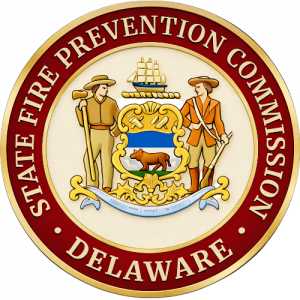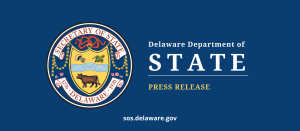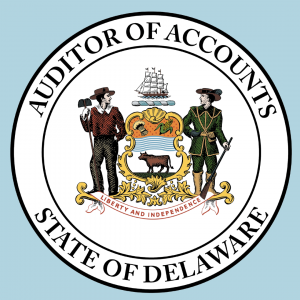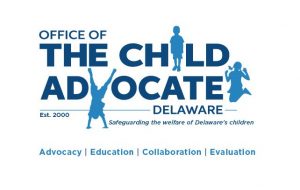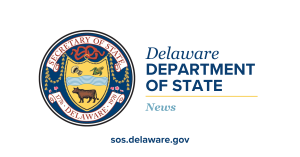Changes to State support of early learning programs are designed to increase access to high quality care
Wilmington, DE – Having made early childhood services a priority of his administration, Governor Markell announced today enhancements designed to help more early childhood programs receive high ratings and make it easier for kids from low-income families to get the best care.
Effective July 1, top quality programs will receive higher reimbursement rates from the state for accepting kids from families whose incomes are 200 percent of the poverty level or less. In addition, recently-published research by Stanford psychologists has found that “two-year-old children of lower-income families may already be six months behind in language development.” Delaware will become just the second state, after Rhode Island, to make infant care a special priority by providing funding for the additional staff necessary to work with the state’s youngest kids.
The state will also focus on providing the specific support child care providers say they need to increase their quality rating. At the same time, to earn the top ratings, programs will be held accountable for meeting specific standards based on research about factors that most affect a child’s development – like a curriculum focused on intentional teaching and a highly trained staff.
“To build a strong future for Delaware, we must give our kids the best chance to reach their potential,” said Governor Markell. “But we can’t wait for kindergarten to start preparing them for success. Quality early learning and care results in better educated, healthier, and more responsible adults. It’s a vital building block for the strong and sustainable workforce that determines America’s ability to compete in the decades to come.
“I’m proud of the progress we have made and I’m committed that we will not rest until every child has a fair opportunity.”
Background of Early Childhood Enhancements
The changes outlined below build on progress Delaware has made since Governor Markell proposed, and the General Assembly passed, a $22 million investment in 2011 to increase early childhood’s budget by a third. That funding was the start of an effort to significantly upgrade the state’s STARS Quality Rating and Improvement System (QRIS) by increasing the number of high-quality early learning programs and giving the best programs the support they need to accept kids who could otherwise not afford to enroll.
State reimbursements for those children were significantly increased to 80 percent for three-star programs, 90 percent for four-star programs, and 100 percent for five-star programs. (Programs are rated on a 1-5 scale.)
Last year alone, the number of low-income Delaware children attending a high quality program increased by 50 percent, representing 2,200 kids.
Funding for the latest upgrades – the first major changes to funding for early learning programs since the initial improvements – come from the $50 million federal Early Learning Challenge grant that Delaware won in 2011, to continue to improve early childhood education in the state.
“These enhancements reflect the result of a comprehensive review of our programs, extensive feedback from early care providers, and a close examination of the research on successful early childhood programs,” said Jennifer Ranji, Secretary of the Department of Services for Children, Youth, and their Families. “We know that the greatest benefits of early childhood programs only materialize when we’re able to offer the highest quality care from birth to kindergarten and today’s announcement brings up closer to making that a reality for all of our children.”
“I’m very hopeful that these changes will allow more programs to afford infant care,” said Cheryl Clendaniel, administrator at The Learning Center in Milford. “We see how important those first months are in a child’s development, but the amount of the resources it takes to support infants has made it extremely hard for centers to offer space for them.”
2014 STARS ENHANCEMENTS
- Higher reimbursements for 4 & 5 Star Programs: Recognizing that the most important investments in quality – including hiring great teachers and investing in curriculum – are the most expensive, the state is increasing reimbursement rates for four- and five-star programs starting July 1, 2014.
- Four-star programs will receive 93% of market rate tuition (now 90%)
- Five-star programs will receive 102% of market rate tuition (now 100%)
- Grants that help programs improve their rating will be restructured to take into account the number of children served, so that larger centers will receive more money.
- Infant Care: Four- and five-star programs that offer infant care will receive additional funding.
-
- Through a pilot initiative, Delaware will provide a pool of resources to be divided among qualifying programs to subsidize the high cost of infant care.
- The pool will be distributed in three stages – October 2014, March 2015, and October 2015. (Every qualifying program at the time of distribution will receive funding)
- Programs must be four or five stars, must offer infant care, and must have a minimum enrollment of 5 percent of children from low-income families.
- Raising Standards for Attaining 4 & 5 Star Ratings: Additional funding comes with more accountability. In the past, programs were only required to meet a certain number of a set of standards, but did not have to meet any one in particular. Recognizing that there are essential components of any high-quality program, the state is phasing in mandatory standards for programs moving up to or re-verifying as four and five stars. These standards include:
-
- Child Development Screening (January 2015)
- Child Formative Assessment (January 2016)
- Integration of Child Observation & Curriculum (July 2016)
- Administrator Credential (July 2015) (Centers only,not family providers)
- Curriculum & Assessment Credential (July 2016) (Centers only, not family providers)
- Additional Support: In response to feedback from providers and to help them meet the essential standards, the state will provide additional support for:



